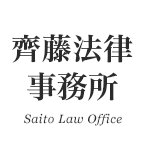Best Toxic Mold Lawyers in Tokyo
Share your needs with us, get contacted by law firms.
Free. Takes 2 min.
List of the best lawyers in Tokyo, Japan
About Toxic Mold Law in Tokyo, Japan
Toxic mold poses a significant threat to human health, capable of causing serious respiratory issues, skin irritation, and other health problems. In Tokyo, Japan, the issue of toxic mold in buildings, especially older structures or those affected by humidity and water leaks, is taken seriously by law. The legal framework surrounding toxic mold primarily aims to protect residents by ensuring safe living conditions, holding property owners and landlords accountable for maintaining their properties mold-free and addressing any occurrences promptly and effectively.
Why You May Need a Lawyer
There are several situations where securing legal representation could be critical when dealing with toxic mold. If you’re a tenant finding mold in your rental property that the landlord refuses to address, a lawyer can help enforce your rights for a safe living environment. Additionally, if you’ve suffered health complications due to toxic mold exposure in public buildings or your workplace, a lawyer can assist in seeking compensation for your medical bills and related damages. Homeowners may also need legal help if their insurers deny mold damage claims or if they've bought a property where mold issues were not disclosed.
Local Laws Overview
In Tokyo, Japan, landlord-tenant laws require landlords to ensure their properties meet health and safety standards, which include addressing mold issues. Building codes also set requirements for construction and maintenance to prevent mold growth. However, specific laws regarding toxic mold can be complex, and litigation in mold cases usually involves proving negligence or breach of contract. It's important to understand how these local laws apply to your situation, which a qualified lawyer can help clarify.
Frequently Asked Questions
1. What health problems can toxic mold cause?
Exposure to toxic mold can lead to respiratory issues, allergic reactions, skin irritation, and in severe cases, neurological problems.
2. What should I do if I find mold in my rental property?
Notify your landlord in writing immediately, requesting prompt removal. If the problem persists, consult a lawyer for legal advice on how to proceed.
3. Can I break my lease because of mold?
In some cases, if the landlord fails to address the mold issue affecting your health and safety, you might have the grounds to terminate your lease. Legal advice is highly recommended to navigate this process correctly.
4. Who is responsible for mold removal?
Landlords are generally responsible for mold removal in rental properties. However, if a tenant's action led to the mold growth, they might be held liable.
5. What evidence do I need for a mold claim?
Documentation is crucial, including photographs of the mold, medical reports if there were health impacts, communications with the landlord or property manager, and professional assessments of mold presence.
6. Can mold disputes be resolved without going to court?
Yes, many mold disputes are settled through negotiation or mediation. A lawyer can help facilitate these alternatives to litigation.
7. How long do I have to file a mold-related lawsuit?
The statute of limitations for filing a lawsuit can vary, so it's critical to seek legal advice promptly to not forfeit your right to seek damages.
8. What compensation can I expect from a mold lawsuit?
Compensation can cover medical expenses, property damage, lost wages, and in some cases, pain and suffering. The amount depends on the specifics of each case.
9. Is mold testing necessary?
Professional mold testing can provide evidence of the type and severity of mold present, which can be pivotal in legal cases.
10. How do I find a lawyer experienced with toxic mold cases?
Look for lawyers specializing in environmental law or landlord-tenant disputes with a track record in handling mold cases. Consultations can help determine the best fit for your situation.
Additional Resources
For those dealing with toxic mold issues in Tokyo, Japan, the Ministry of Health, Labour and Welfare offers guidelines and information on dealing with mold in homes and workplaces. Local tenant associations and consumer protection organizations can also provide assistance and advice on addressing mold problems.
Next Steps
If you're facing a toxic mold issue, the first step is gathering evidence of the problem and any associated damages or health issues. Consult a lawyer experienced in toxic mold cases to explore your legal options and develop a plan of action. Remember, addressing the issue early can help prevent further damage and ensure your rights are fully protected.
Lawzana helps you find the best lawyers and law firms in Tokyo through a curated and pre-screened list of qualified legal professionals. Our platform offers rankings and detailed profiles of attorneys and law firms, allowing you to compare based on practice areas, including Toxic Mold, experience, and client feedback.
Each profile includes a description of the firm's areas of practice, client reviews, team members and partners, year of establishment, spoken languages, office locations, contact information, social media presence, and any published articles or resources. Most firms on our platform speak English and are experienced in both local and international legal matters.
Get a quote from top-rated law firms in Tokyo, Japan — quickly, securely, and without unnecessary hassle.
Disclaimer:
The information provided on this page is for general informational purposes only and does not constitute legal advice. While we strive to ensure the accuracy and relevance of the content, legal information may change over time, and interpretations of the law can vary. You should always consult with a qualified legal professional for advice specific to your situation.
We disclaim all liability for actions taken or not taken based on the content of this page. If you believe any information is incorrect or outdated, please contact us, and we will review and update it where appropriate.












